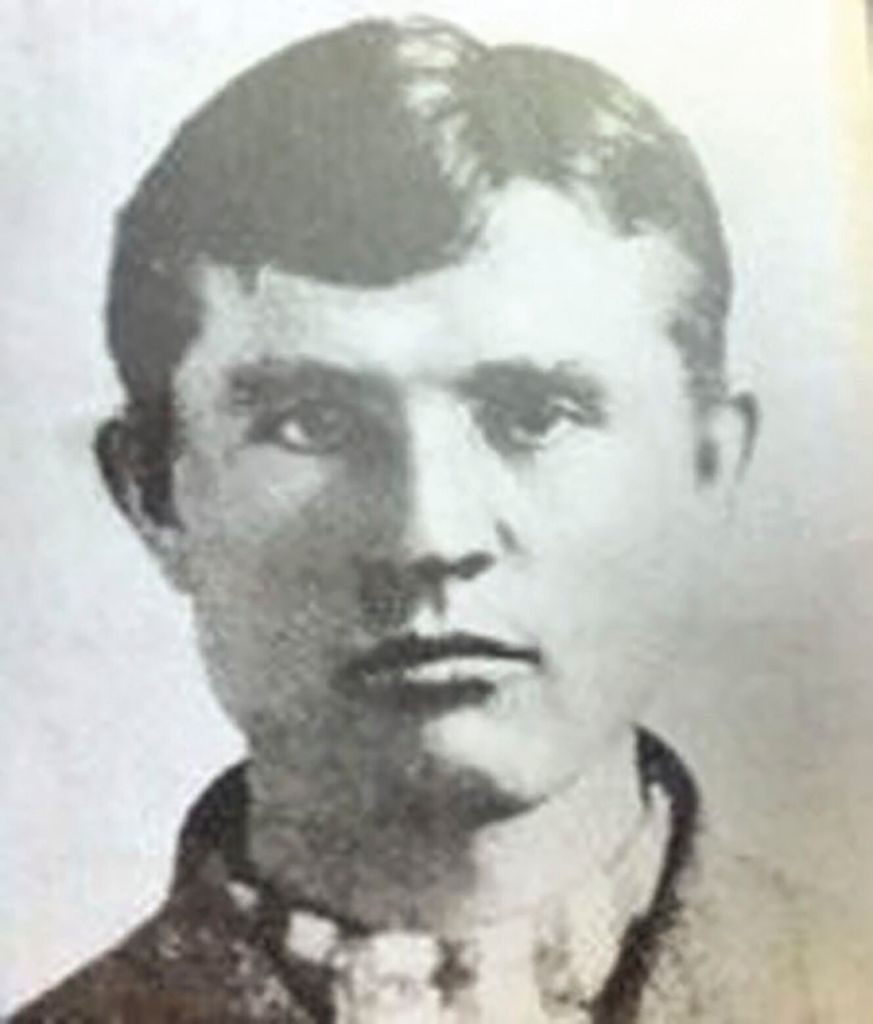Chieftain’s old volumes come ‘full circle’ to Wallowa County Museum
Published 5:30 am Saturday, December 14, 2024

- Dave Tucker around the time of the 1896 Joseph bank robbery he participated in.
JOSEPH — Buried treasure. A bank robbery. Genealogies. Murder, mayhem and more.
They’re all a part of the 140 years’ worth of the Wallowa County Chieftain — and its predecessors — that are now among the artifacts on display at the Wallowa County Museum in Joseph.
When the Chieftain ceased its print publication in late June and went to an all-digital format, one big question was what to do with the bound volumes of the newspaper stored — and used both by the public and the newspaper staff — at the former office in Enterprise.
Well, the museum has one of the most complete collections of local history to be found in the county.
The bound volumes are now stored in a climate-controlled room to continue to preserve them. Museum curator Jude Graham said the 1888 building was expanded to include an adjacent building some years ago and fireproof walls and doors were installed, as were sensors to detect changes in temperature and moisture.
“It’s got its own heater in there, it has fireproof walls and doors, the doors lock,” she said. “The temperature is controlled and the humidity is controlled by the dryness of the heat. I have a sensor on my phone that shows any moisture that comes in. The sensor will alert your phone with a beep.”
Long history
The Chieftain dates back to 1884. That’s the earliest sample included in the museum’s collection, printed in a building that no longer exists across Main Street from the current museum. The archives, unfortunately, aren’t complete. The collection includes just a few of those earliest Chieftains, Graham said.
“We just got two papers from 1922 — July and November — and we didn’t have either copy,” volunteer Myrla Clark said. “So this gentleman sent them to us very graciously, and we’re glad to get them, too.”
They’d like to get copies of some of the other papers produced in the county. She mentioned, in particular, the Flora Journal, the Wallowa Sun, the Silver Lake Herald, the Sentinel and the Aurora (from Enterprise), among others.
“Myrla, fortunately, knows everything about the Chieftain,” Graham said.
She noted that Clark has written books about the county’s history, particularly focusing on genealogies.
The museum was built to house the First Bank of Joseph and the Wallowa Chieftain before the county was formed from the eastern portion of Union County in 1887. Since then, the paper has gone by a number of different names.
The museum even has a printing press donated by Don Swart, who was a longtime owner and publisher of the Chieftain. The press is kept downstairs in the museum’s Farm & Ranch Room.
“It’s pretty impressive to see,” Graham said.
History preserved
The 140 years’ worth of Chieftains record many interesting incidents that occurred in the county. Readers can learn about the difficulties of travel within the county in the early years, be it by stagecoach or automobile. Fewer roads were paved and vehicles were not the quality they are today. Readers also can track the progress of building the Lewiston Highway in the 1940s.
The obituaries, which Clark has given much attention to, chronicle the lives of the people who lived and died here. The obits also document the service of veterans in America’s wars, as do notices of soldiers, sailors and Marines who left to fight or returned.
One of the more interesting incidents is the 1896 robbery of the First Bank of Joseph, in which a young Dave Tucker was one of the four bandits. One of the holdup men was killed when local residents brought their guns to defend the bank — and their deposits — and Tucker and another young man were captured. The fourth bandit got away with less than $2,000 in cash and was never apprehended. Later reports show that he settled in California but was never prosecuted.
Tucker, on the other hand, spent six years of an eight-year prison sentence in the state penitentiary in Salem. He appears to have reformed, as he came back to the county, where he went to work on a sheep ranch. He then got his own place and married Minnie, who had waited for him.
Then came the real turnaround: He ended up as the vice president of a bank in Joseph. Bank boards then were mostly made up of ranchers and businessmen, Clark said, and this bank’s directors evidently had come to respect the former bank robber.
“So that’s how Dave eventually got on the board,” she said.
He and Minnie went on to have several children, including son Harley Tucker, who was the original stock contractor and founder of the Chief Joseph Days Rodeo. Harley’s great-grandson, Derek Kolbaba, has been a champion bull rider at the rodeo in recent years.
But the robbery probably wasn’t the proudest moment in the family’s history.
“Dave’s children didn’t know about the bank holdup until they were adults,” Graham said. “They just never talked about it.”
Clark qualified that with another thought.
“But they should’ve been proud of what he became afterward,” she said.
Some of the history recorded in the old papers is not considered appropriate for today. Racial slurs were often used to describe minorities, and other “news” could cause a bit of mayhem.
Graham said one man wrote to give directions to buried gold coins on several properties in the county, and even an oil discovery.
“Everybody who’d read this would want to go to so-and-so’s ranch and try to find the gold,” she said.
Better access
With the Chieftains coming to the museum, they’re probably more accessible to the public than they were at the newspaper office in Enterprise, largely because of the reduced hours the office was open since the COVID-19 pandemic struck in 2020.
“In the wintertime, we can have somebody meet somebody here, even though the museum’s not open,” Graham said. “We do ask that people make an appointment to come and see them. We want to preserve them, so somebody needs to be here to help put them out of the vault.”
Graham said she believes it’s fitting that the paper’s archives have returned to the museum building.
The newspaper’s first office was in what is now called the Nez Perce Room, she said.
“It’s very historic that the newspapers have come (back) here,” she said. “It’s like full circle.”
What: Wallowa County Chieftains, 1884-2024
Where: Wallowa County Museum, 110 S Main St., Joseph
Phone: 541-432-6095
When: 10 a.m.-4 p.m.; closed Tuesdays. Closed except by appointment third week in September through Memorial Day.






